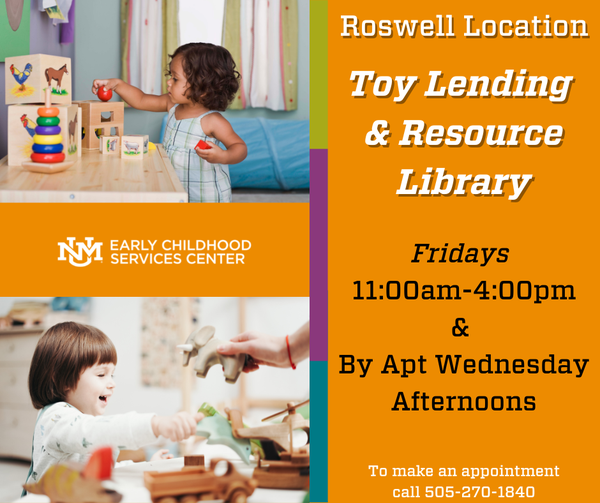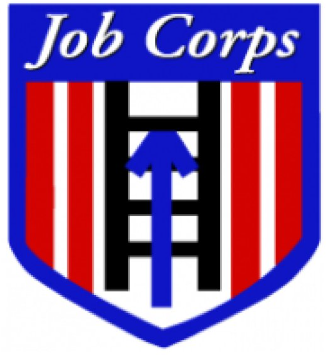GD Archive
Top Level Services
-
Our shelter for battered adults is open 24/7 and provides temporary shelter for those adults and their children who are victims of domestic violence. Advocates are always available to provide service to those in need of our assistance or those who simply need a friendly voice to talk with.
Our Juvenile Non-violence program is available to those teens who have issues of violence and abuse in their lives whether or not they are involved in the Juvenile Justice System. B.E.A.R (Becoming Empowered, Accountable and Responsible) is a 16 session program for ages 13-17 which offers skills and tools to help those young people take control of their behavior and their lives.
-
The Early Childhood Services Center Toy Lending & Resource Library allows parents and caregivers to borrow toys, educational materials, videos and books for FREE. All you need is an ID to borrow.
-
Several Home Visiting programs offered that will help parents through every stage of pregnancy and child rearing, prenatal through a child’s 5th birthday.
All MECA Therapies services can be conducted via in-person or telehealth visits
- Prenatal, postpartum and infant home visits
- Diet & nutrition education, stress management, baby supplies
- Safe sleep (preventing SIDS), child developmental screenings
- Improved Maternal and newborn health-community resources
- Counseling for postpartum recovery, family planning, & newborn needs, focused education for literacy and school preparedness for your child
Evaluation, case management, and therapy services for
- Speech and language delays and disorders
- Feeding and swallowing difficulties
- Physical delays
- Developmental delays
- Neurologic/neuromuscular conditions
- Sensory integration conditions
- Autism spectrum disorders
- Nursing services
- Families in the Neonatal Intensive Care Unit (NICU)
-
Los Pasitos provides Early Intervention services to children ages birth to three years, that are at risk for, or that have a developmental delay or disability, get the support they need to reach their full potential. Los Pasitos partners with families to nurture and advocate for their child’s development through coaching and modeling in their natural environment so that parents and caregivers can shine while helping their child reach their full potential. Services include Occupational Therapy, Physical Therapy, Speech Therapy, Developmental Instruction, Family Counseling, and Transition to Preschool.
-
County: ChavesSupport Sector: Food
Mission:
To actively demonstrate to everyone the love of God through acts of kindness, service, generosity and care.
Vision:
To help pull the impoverished, addicted, and struggling out of hopelessness and give them “hope for today and healing for tomorrow.”
-
: 9:00 am - 4:30 pmMon9:00 am - 4:30 pmTue9:00 am - 4:30 pmWed9:00 am - 4:30 pmThu9:00 am - 4:30 pmFri9:00 am - 4:30 pmSatClosedSunClosed
We lovingly operate support groups and educational group interventions to encourage conversation about difficult topics. We offer a food assistance program, on-site medical clinic, transportation assistance for medical appointments, health insurance navigation and more.
We run stigma-free syringe exchanges, free HIV, syphilis and hepatitis C testing without any judgement, and a PrEP linkage program that guides people in need to the prevention methods that work for them. Our MAT (medication assisted treatment) linkage helps healthcare providers be able to use evidence-based treatments for people who use substances while also providing people who use substances information they can use to find treatment.
We operate housing assistance for qualifying individuals throughout New Mexico to see people moving from the streets into homes that foster healthier living opportunities. Funding from federal and state sources allows applications to receive rental assistance, utility assistance, and more.
COUNTIES WE SERVE:
- Chaves
- Curry
- Catron
- DeBaca
- Dona Ana
- Eddy
- Grant
- Hidalgo
- Lea
- Luna
- Lincoln
- Otero
- Quay
- Roosevelt
- Socorro
- Sierra
-
: 8:00 am - 5:00 pmMon8:00 am - 5:00 pmTue8:00 am - 5:00 pmWed8:00 am - 5:00 pmThu8:00 am - 5:00 pmFri8:00 am - 5:00 pmSatClosedSunClosed
Job Corps is the largest, free job training and education program in the country. Learn in the classroom and practice on the jobsite. Ages 16‐24 can apply to Job Corps to learn a trade, obtain graduate support, finish high school, obtain free training, free housing, and other amenities.
YOUR JOURNEY THROUGH JOB CORPS
4 STEPS TO SUCCESS | CAREER DEVELOPMENT SERVICES SYSTEM (CDSS)
OUTREACH AND ADMISSIONS (OA)Welcome to Job Corps! During admissions, you will learn…
- What Job Corps is all about
- How we can help you start a career
- What training and living at a Job Corps center will be like
- What your responsibilities will be as a student
- What career training is available at your assigned Job Corps center
- How to complete your Job Corps application
CAREER PREPARATION PERIOD (CPP)
In your first 60 days on center or virtually, you will…
- Create and commit to a Personal Career Development Plan (PCDP) with the help of Job Corps staff
- Visit and learn about American Job Centers / One-Stop Centers
- Learn and practice personal responsibility skills required at the workplace
- Learn, demonstrate, and practice job search skills
CAREER DEVELOPMENT PERIOD (CDP)
With the help of center staff and employers, you will…
- Learn industry-related technical and academic skills
- Demonstrate interpersonal communication and problem-solving skills
- Practice social and personal management skills
You will then…
- Begin the job search process
- Prepare for independent living
CAREER TRANSITION PERIOD (CTP)
As a Job Corps graduate, you will…
- Successfully get your first job
- Find living accommodations, transportation, and family support resources needed to continue working (with the support of the center and other Job Corps service providers)
- Continue to contact Job Corps service providers to seek their support, if needed
- Respond to 13-week, 6-month, and 12-month survey requests
TO QUALIFY FOR JOB CORPS, STUDENTS MUST BE…
- 16 TO 24 YEARS OLD
- 16 to 24-year-olds ready to work toward a successful future are welcome. The maximum age limit may be waived if the applicant is a person with a documented disability. For minors, a parent or guardian must sign a consent form.
- INCOME ELIGIBLE
- Applicants must meet one or more of these conditions: receives public assistance, earns poverty-level income, is homeless, is a foster child, or qualifies for free or reduced-price lunch. Your admissions representative will help you determine your eligibility.
- ABLE TO WORK IN THE USA
- The applicant is a U.S. citizen, is a legal U.S. resident, or is a resident of a U.S. territory and/or is authorized to work in the United States.
- IN NEED OF JOB SKILLS
- The applicant needs job skills training, education, counseling, or related assistance to help get you started on a career pathway.
ADDITIONALLY, STUDENTS MUST HAVE…
- A CHILD CARE PLAN
- The student has made suitable arrangements for the care of any dependent children for the proposed period of enrollment.
- NO COURT DATES OR FINES
- The student may not be eligible if they have certain criminal convictions or require court supervision.
- NO BEHAVIOR ISSUES
- The student does not exhibit behavioral problems that could keep you or others from experiencing Job Corps' full benefits.
- NO ILLEGAL DRUG USE
- The student does not use drugs illegally.
BECAUSE JOB CORPS IS A VOLUNTARY PROGRAM, STUDENTS CHOOSE TO ENROLL IN THE PROGRAM AND MAY EXIT AT ANY TIME.
-
: 9:00 am - 4:00 pmMon9:00 am - 4:00 pmTue9:00 am - 4:00 pmWed9:00 am - 4:00 pmThu9:00 am - 4:00 pmFri9:00 am - 4:00 pmSatClosedSunClosedWhat are housing choice vouchers?
The housing choice voucher program is the federal government's major program for assisting very low-income families, the elderly, and the disabled to afford decent, safe, and sanitary housing in the private market. Since housing assistance is provided on behalf of the family or individual, participants are able to find their own housing, including single-family homes, townhouses and apartments.
The participant is free to choose any housing that meets the requirements of the program and is not limited to units located in subsidized housing projects.
Housing choice vouchers are administered locally by public housing agencies (PHAs). The PHAs receive federal funds from the U.S. Department of Housing and Urban Development (HUD) to administer the voucher program.
A family that is issued a housing voucher is responsible for finding a suitable housing unit of the family's choice where the owner agrees to rent under the program. This unit may include the family's present residence. Rental units must meet minimum standards of health and safety, as determined by the PHA.
A housing subsidy is paid to the landlord directly by the PHA on behalf of the participating family. The family then pays the difference between the actual rent charged by the landlord and the amount subsidized by the program. Under certain circumstances, if authorized by the PHA, a family may use its voucher to purchase a modest home.
Am I eligible?Eligibility for a housing voucher is determined by the Public Housing Agency (PHA) based on the total annual gross income and family size and is limited to US citizens and specified categories of non-citizens who have eligible immigration status. In general, the family's income may not exceed 50% of the median income for the county or metropolitan area in which the family chooses to live. By law, a PHA must provide 75 percent of its voucher to applicants whose incomes do not exceed 30 percent of the area median income. Median income levels are published by HUD and vary by location. The PHA serving your community can provide you with the income limits for your area and family size.
During the application process, the PHA will collect information on family income, assets, and family composition. The PHA will verify this information with other local agencies, your employer and bank, and will use the information to determine program eligibility and the amount of the housing assistance payment.
If the PHA determines that your family is eligible, the PHA will put your name on a waiting list, unless it is able to assist you immediately. Once your name is reached on the waiting list, the PHA will contact you and issue to you a housing voucher.

No listings were found matching your selection. Something missing? Why not add a listing?.







